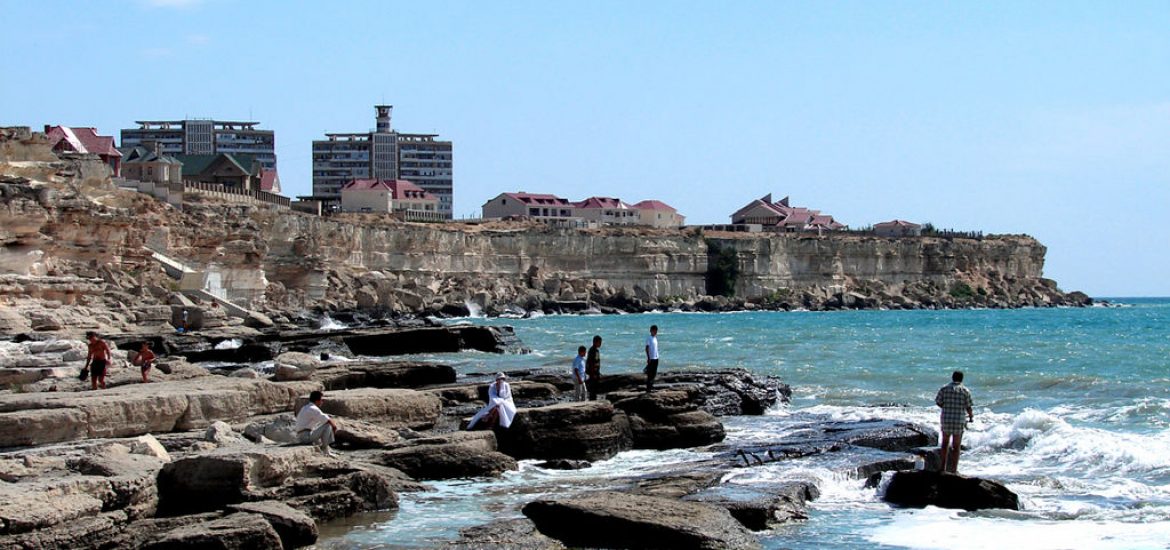
A summit of the Caspian countries will discuss strengthening security amid a chaotic wider region, said a member of Russia’s State Duma Committee on International Affairs Sergey Zheleznyak.
And the foreign minister of Kazakhstan, Kairat Abdrakhmanov, said the August 12 summit, attended by Kazakhstan, Azerbaijan, Iran, Russia and Turkmenistan, would address the full legal status of the Caspian.
The overall Caspian debate is the determination of whether the giant basin is a sea or a lake. If it is a lake, the five states can equally divide and exploit the energy potential of the basin. Iran backs this option as it holds only 13 per cent of Caspian reserves.
If the Caspian is designated as a sea, the states can only exploit the reserves contained within their maritime borders.
The five have agreed on a draft of the Caspian Sea Convention that is expected to be signed at the summit in the Kazakh city of Aktau (pictured).
The convention defines and regulates the rights and obligations of the five nations regarding the use of the sea, its waters, bed, subsoil, natural resources and airspace.
Turkmenistan and Kazakhstan are keen to export oil and gas to Europe, bypassing Russia and Iran, while Azeri energy exports do not have to cross the Caspian to reach the west.
The lack of an agreed legal status for the Caspian prevented the development of the Trans-Caspian oil and gas corridor, which would allow Kazakhstan and Turkmenistan to deliver energy exports to Europe.
“This will not only increase the investment attractiveness of the region, but will also contribute to strengthening international security,” Abdrakhmanov told the media.
After the collapse of the USSR, the emergence of independent Azerbaijan, Kazakhstan and Turkmenistan raised the issue of delimitation of the sea between the five countries amid the ongoing sea-or-lake debate, which is regulated by different provisions of international law.
The Caspian basin has 48 billion barrels of proven oil reserves, while natural gas reserves are estimated at 8.76 trillion cubic metres.
“In addition to economic issues and the development of regional cooperation in such areas as energy, transport, trade and many others, the summit will certainly focus on the problems of strengthening the security of the Caspian countries, which are in a difficult geopolitical region, close to the pockets of instability,” said Zheleznyak.
He said Kazakhstan was calling for comprehensive integration, including in investment in the North-South transport corridor, requiring synchronisation of customs procedures.
“I am sure that the participants will devote a significant part of the summit to cooperation in the humanitarian sphere, in the field of education and culture, as well as to the expansion of ties between the regions of our countries,” the minister said.
The Kazakh city of Aktau. The Caspian has been in legal limbo since the fall of the USSR. Picture credit: Wikimedia





